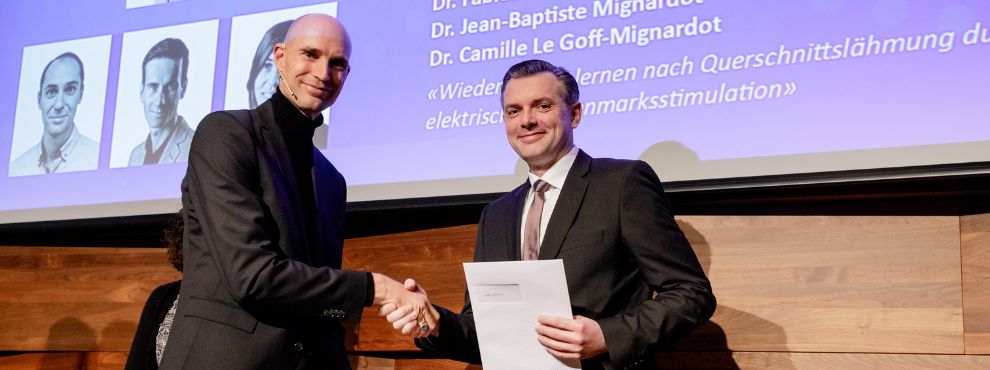Dr. Ulf Kallweit receives Pfizer Prize 2020 for narcolepsy research
The researcher from Witten/Herdecke University received the award in the category "Neurosciences and Diseases of the Nervous System".

Dr Ulf Kallweit from the University of Witten/Herdecke (UW/H) has been awarded a Pfizer Research Prize 2020 for his research into the role of the immune system in excessive daytime sleepiness (narcolepsy). He receives the award in the category "Neurosciences and Diseases of the Nervous System" together with Dr Daniela Latorre from the Università Svizzera Italiana.
Since 1992, the Pfizer Research Prize Foundation has been honouring researchers up to 45 years of age on the recommendation of independent scientific committees. At the 29th award ceremony on 6 February 2020, it honoured 19 researchers from ten countries.
About the person
Ulf Kallweit teaches and researches at Witten/Herdecke University. He completed his dissertation in 2005 at the Institute of Immunology and Medical Microbiology at the University of Bonn. Five years later, he qualified as a specialist in neurology. His further stations took him as a senior physician via Zurich (University Hospital Zurich, Neurology) and Bern (University Clinic for Neurology, Inselspital) to the Institute of Immunology at the University of Würzburg. There he is Head of Clinical Sleep and Neuroimmunology and Head of the Specialised Outpatient Clinic for Neurological Sleep-Wake Disorders.
"The research award is an incentive for me to explore the connections between neurological and immunological factors in neurology further and in greater depth and thus to better understand the disease narcolepsy," says the award winner. "The hope is that this will enable us to develop new and better therapies and make them widely available."
Immune system and sleep
Patients with narcolepsy suffer from excessive daytime sleepiness and cataplexy, a sudden loss of muscle tone triggered by strong emotions. The disease is caused by the loss of a messenger substance, a protein called hypocretin, in the brain and develops in people with a corresponding genetic predisposition in combination with other environmental factors.
Kallweit and Latorre investigated a connection between narcolepsy and the immune system that has long been suspected but not previously studied. The study reports for the first time that patients with narcolepsy have special T cells (a type of white blood cell) that can recognise hypocretin and cause its destruction. These results raise awareness of the disease narcolepsy, which is little known and often undiagnosed (or diagnosed too late). They also open up new possibilities for diagnosis and treatment. "Based on our results, narcolepsy can be seen as a model for the connection between the nervous and immune systems," says Kallweit.
Publication:
T cells in patients with narcolepsy target self-antigens of hypocretin neurons. Daniela Latorre*, Ulf Kallweit*, Eric Armentani, Mathilde Foglierini, Federico Mele, Antonino Cassotta, Sandra Jovic, David Jarrossay, Johannes Mathis, Francesco Zellini, Burkhard Becher, Antonio Lanzavecchia, Ramin Khatami, Mauro Manconi, Mehdi Tafti, Claudio L. Bassetti, Federica Sallusto. Nature 2018 Oct; 562 (7725): 63-68.
*These authors contributed equally to this work.
